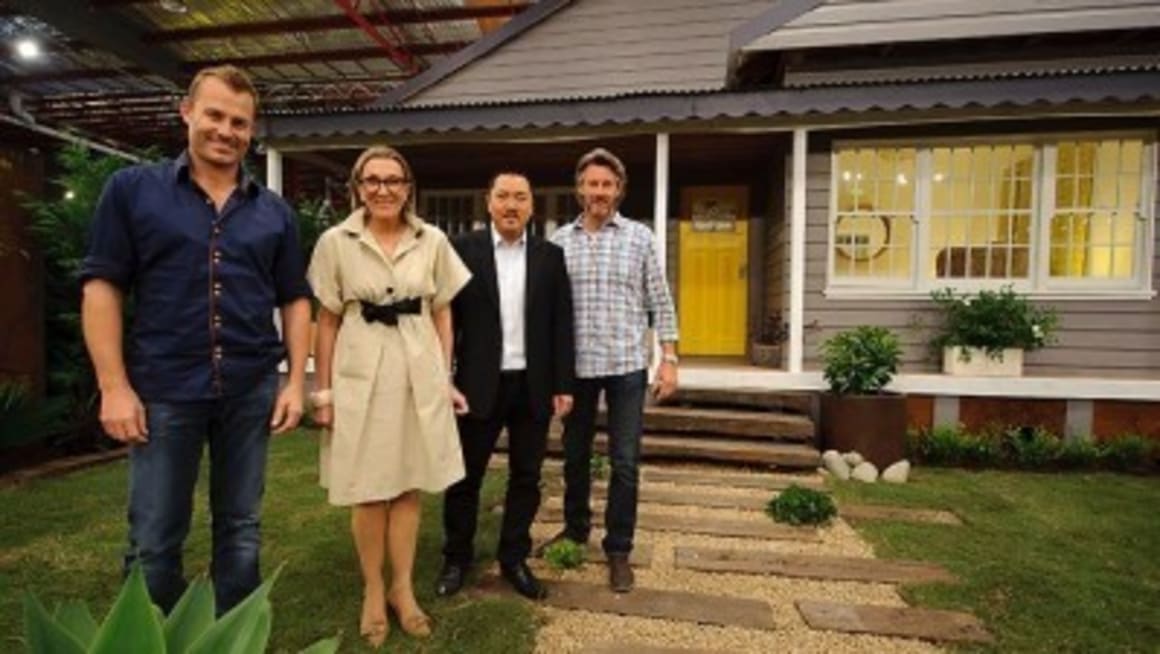The Renovators gives would-be fixer-uppers false profit hope: Buyers' agent

As we look back on 2011, Property Observer is republishing some of our most noteworthy stories of the year.
Renovators are at risk of losing hundreds of thousands of dollars because reality home improvement TV shows don’t reveal their full costs, according to Sydney buyers’ agent Patrick Bright.
“Reality home improvement programs like the last series of The Block and the current series of The Renovators were giving viewers a false perception of the costs involved to renovate property,” Bright says.
With three months of renovations, The Renovators claimed to be the most expensive ambitious home-renovation show put to air.
The ratings for The Renovators was well short of expectations, but it hasn’t stopped Bright's company, EPS Property Search, experiencing a dramatic increase in buy, renovate and sell project enquiries, with many people unaware of the true costs involved in renovating property.
“Whilst they are great entertainment, the biggest downfall from programs like The Renovators and The Block is that they don’t reveal to viewers the real cost of labour to make these improvements as well as the total costs associated with buying and selling real estate like stamp duty, legals, marketing and selling agents costs,” he says.
“The concept of buying, renovating and selling property as soon as the paint is dry can be profitable if executed correctly, however for most people is almost a guaranteed way to make a loss,” says Bright.
“In these television programs contestants end up with regular $10,000 bonuses as well as big prizes such as a $30,000 cash boost or a pool package for the property, which significantly add value to the renovation project but are not taken into consideration on the profit and loss ledger come sale time.”
“Most would-be renovators who try to copy the formula seen on TV hoping to make a quick profit will end up bitterly disappointed and lose a lot of money.”
He says the programs don’t show the hidden costs associated with renovating, which quickly add up, such as finance costs, holding costs and council fees.
Bright also says both shows highlight that renovating and making a profit is not easy to do, even with significant resources and support.
The shows highlights the importance of sticking to an appropriate budget based on purchase price and end value so you can make a profit, he says.
The shift to more at-home entertaining and creating stylish rooms in existing homes - rather than upgrading to a new, more expensive home – has been noticed by TAFE colleges, which have witnessed a surge in interior decoration and design courses.
Bright's comments coincide with figures released by the Housing Industry of Australia that show that the total renovation investment nationally surged in the first half of 2011 and is forecast to reach close to record levels in the next two years.
The HIA data shows renovations activity is growing, with the total investment in renovations increasing in both the March and June quarters of 2011, driven by both small and large renovation jobs.
“The high transaction costs involved in moving home was the main factor driving households to invest in their existing property,” says HIA chief economist Dr Harley Dale.
“Total renovations investment is forecast to grow by 2.3% to $31.6 billion in 2011-12 and to increase by a further 4.6% to $33 billion in 2012-13, which would be approaching a record high,” Dale adds.
Bright, whose buyers’ agency project manages property renovations for clients, says once a property has been renovated there is a choice for owners to sell the property or turn it into a higher-yielding investment property and take advantage of the manufactured capital growth. His latest book, The Insider’s Guide to Renovating for Profit, is due out later this year.
The auction finale of The Renovators will go to air Wednesday night.
There have been reports that many of the houses failed to sell in excess of their purchase and renovation costs.
Meanwhile the NSW state government is set to unveil reforms to the Home Building Act, with key changes including raising the threshold for written contracts from $1,000 to $5,000 and raising the home warranty insurance threshold from $12,000 to $20,000.
Fair Trading Minister Anthony Roberts says the amendments will "pump some adrenalin in the industry".
"We want to remove the dead hand of government off as many small tradespeople and builders as possible," he says.
For expert commentary and analysis on lessons to be learnt from property reality TV, download our e-book Lights, Camera, Auction!